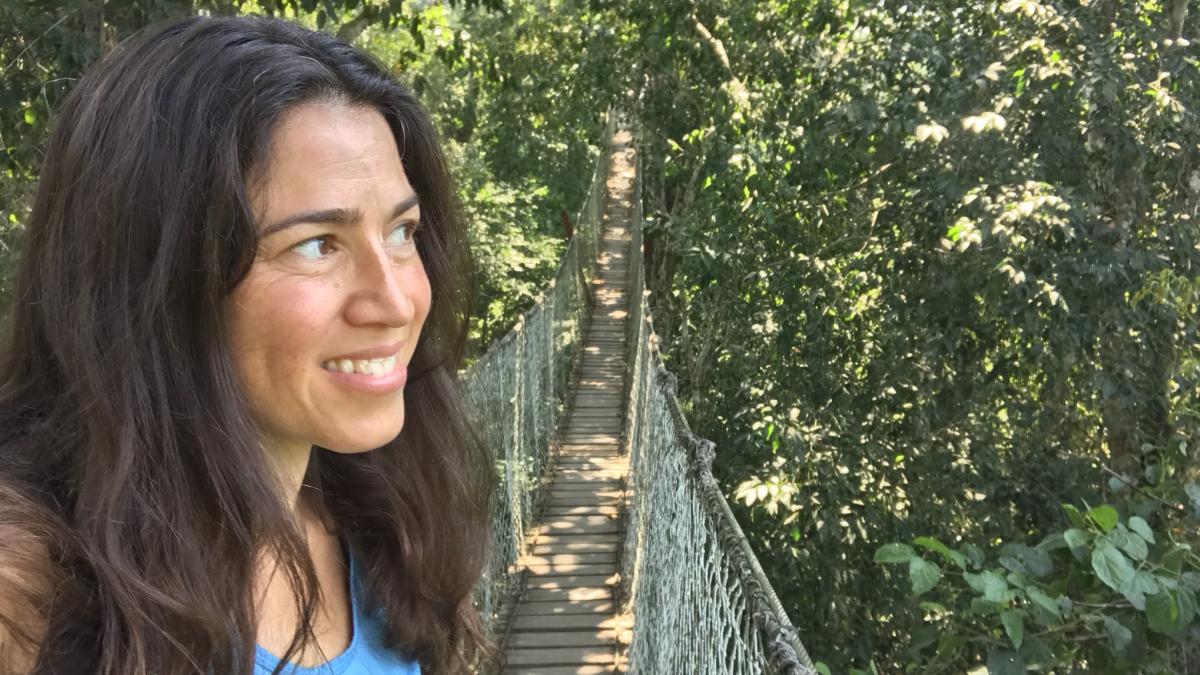Renée Codsi
MPH, One Health
Hometown
Beirut, Lebanon
Future plans
Starting a PhD in Environmental & Occupational Health at DEOHS in the fall.
“My future goals center around working on a grassroots level to create healthy, resilient communities and systems of health that are actually meeting the needs of the people who are most impacted.”
- Renée Codsi
As an MPH student, Renée Codsi tackles tuberculosis, one of the deadliest diseases in the world. And in her free time, she is just as deeply invested in public health and environmental justice.
Since coming to Seattle in 2017, Codsi has cofounded the youth public speaking project TEDxYouth Seattle; volunteered with the graduate student union to push for stronger health benefits, anti-discrimination and climate justice; and served as the UW Graduate Opportunities and Minority Achievement Program department liaison and as diversity, equity and inclusion coordinator for the UW Collaborative on Extreme Event Resilience (CEER).
“My whole vision of the world I want to live in is a place where your health is not defined by your zip code or where you were born,” Codsi said.
Codsi, an MPH student in One Health in the UW Department of Environmental & Occupational Health Sciences (DEOHS), is being doubly honored this year—as part of the Husky 100 and as the department’s 2021 Outstanding Master’s Student—for her research, leadership and community service.
Catching Pokémon mosquitoes to stop Zika
Though Codsi’s master’s thesis focuses on the bacteria that causes tuberculosis, she first came to the UW because of her work on another troubling pathogen—the Zika virus.
When a Zika epidemic began in 2015, Codsi was teaching science at a secondary school in Brazil. The virus, which can cause microcephaly in infants exposed to it in utero, is transmitted by mosquitoes.
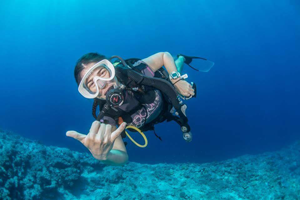
Codsi brainstormed a way to forecast the risk of outbreaks that combined her students’ love of the game Pokémon Go with her experience teaching in Lebanon using a citizen-science framework through the Global Learning and Observations to Benefit the Environment (GLOBE) Program.
“Instead of chasing these imaginary Pokémons, let’s find the places where the mosquitoes are breeding,” she thought.
She and an international team of scientists led by Rusty Low of the Institute for Global Environmental Strategies collaborated to build an open-access app. With funding from the US Agency for International Development and support from NASA, the team launched their app with communities in Brazil and Peru. It has since been shared worldwide.
“The success of it has really changed people’s lives and their connections to the environment,” Codsi said. “I’ve witnessed the direct impact of the power of citizen science.”
As her work on the project developed, she became deputy field director at the Institute for Global Environmental Strategies. She also met one of her current advisers, DEOHS Professor Gerard Cangelosi, after she was invited to speak at a UW Program on Climate Change event in 2017.
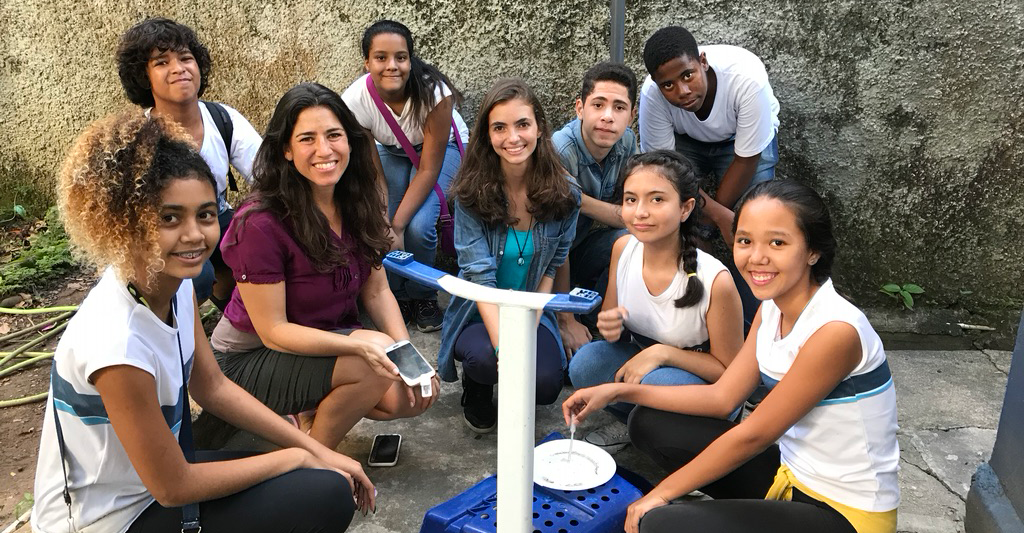
"Renée is a natural-born educator, scientist and leader," said Cangelosi, who later invited her to guest-lecture in his infectious diseases class and then encouraged her to join his lab as an MPH student.
Bringing health care workers’ experiences into TB testing
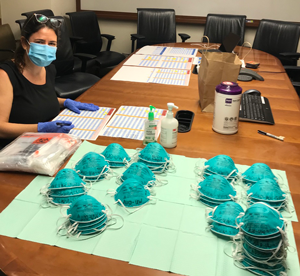
For her MPH, Codsi is conducting video interviews with health care workers in South Africa to understand their reactions to a new, simpler method for TB diagnosis developed in Cangelosi’s lab that can be used in clinics or during patient home visits.
The new tongue-swab method could make it easier to diagnose TB, one of the top 10 causes of death due to an infectious agent worldwide, so that people with the disease can be treated earlier and outbreaks can be stemmed.
Some health care workers at the South African Tuberculosis Vaccine Initiative (SATVI), which partners with Cangelosi’s lab, welcomed the new option, but others found that collecting samples in patients’ homes brought its own complications, Codsi discovered.
Workers were concerned about security and exposure to COVID-19 when they arrived early at people’s homes to collect tongue swabs soon after patients woke up, as the protocol advised. In turn, some patients felt embarrassed giving a sample before brushing their teeth.
As a result of Codsi’s findings, the team adapted its collection protocol to reduce these barriers.
“We really need to shape our science around human behavior, and then test that,” Codsi said.
“Renée has been steadfast in her commitment to her education and her belief in the importance of the research she’s conducting,” said DEOHS Assistant Professor Nicole Errett, who co-advises Codsi and cofounded CEER. “She has the remarkable ability to bridge disciplinary divides and an innate talent of bringing people together."
A global lens and community-oriented research
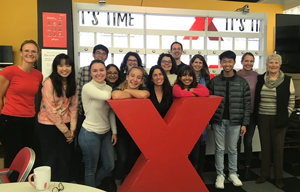
Codsi’s dedication to health equity and community-based research partly stems from her global perspective—she grew up in Lebanon and the US and has taught and done research in Brazil, France, Palau, Peru, Portugal, South Africa, Syria, Thailand and Yemen.
Overcoming challenges in her own life, including experiencing geopolitical war in Lebanon and homelessness as a teenager, has also helped her connect with marginalized communities.
“I've been able to use those skills to successfully connect to people in situations that are different from my own, but that still have a common theme of resilience and survivorship,” she said.
This summer, she will be a teaching assistant for Upward Bound, a program for first-generation college students from low-income communities.
The path to a PhD
This fall, Codsi will continue her TB research as a PhD student in DEOHS. She plans to build training materials for health care workers at SATVI that reflect what she has learned about their willingness to use the oral-swab method.
Both Cangelosi and Errett have inspired her interest in “diversifying not just science and academia, but how data is collected—involving communities and really listening,” Codsi said. “I’m grateful for my mentors and how they have empowered me along the way.”
"Whatever she does, it is certain that public service, environmental justice and equity will be front and center," said Cangelosi.
Funding support: UW Graduate School GSFEI Top Scholar Award; UW Global Innovation Fund Award; UW CoMotion Population Health Initiative Award; Bill and Melinda Gates Foundation grant.
